This week, we discussed the ideas of digital identity and what a conversation we had! After some digital sleuthing of some volunteers courtesy of Twitter, I think it was safe to say we all felt a little creepy and some of us might have enjoyed the process more than 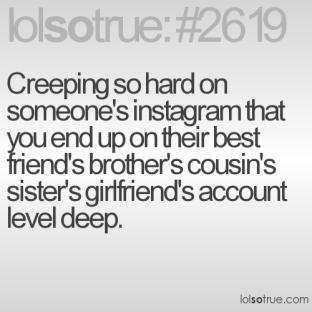 we expected! In the current digital world, it is almost normalized to “creep” on other people, especially when we do not know the person well. And we all know we are guilty of it, whether we want to admit it or not.
we expected! In the current digital world, it is almost normalized to “creep” on other people, especially when we do not know the person well. And we all know we are guilty of it, whether we want to admit it or not.
Another thing we probably don’t want to admit is that we all ran to google immediately after class to double check our own digital identity and make sure it was as clear as it was last time we “googled” ourselves. I definitely wanted to make sure my digital footprint was similar to what it was in the past and I breathed a sigh of relief knowing that in fact it was pretty crystal clear!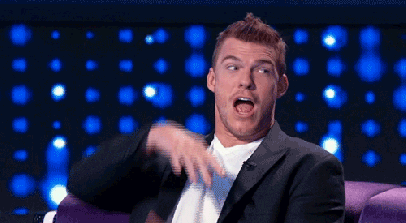
It’s safe to say that since I was a teenager, adults have scared the life out of me lecturing about how my digital footprint needs to be clean and how one mistake can affect the rest of your life online as well as in the real world, particularly related to your career choice. Growing up, knowing I wanted to be a teacher, I made sure I was smart online. When I was a teenager, we also had to take pictures with a camera, and almost all of them ended up on Facebook but at least we would edit out certain ones first. Nowadays, kids have a lot more to worry about because it takes less than 3 seconds to upload a photo to the internet or social media, instead of hours or days! I didn’t really have to worry about inappropriate photos ending up online, and honestly I was a pretty good kid, and I was mature enough to understand I didn’t want certain things to end up online. 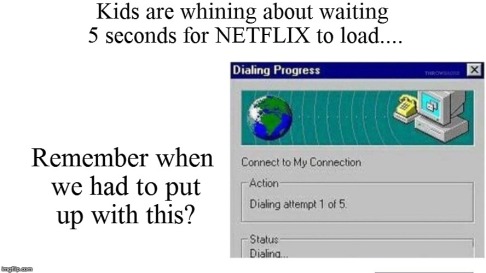
When I applied for education, and went through the program at the University of Regina, the professors often warned to clean up our online profiles because school divisions will check and will not hire anyone who has provocative photos, posts, or anything illegal like underage drinking on their profile. In the year of 2010, the only real social media platform I had was Facebook and so the purging of friends and photos commenced taking care to ensure my profile was clean for hiring – almost too clean. Looking back, I was pretty freaked out about the whole idea and although it was an important aspect, I don’t think it should be everything. People make mistakes but I also have some pretty awesome memories but feel uncomfortable sharing because there may be something in the background. Is this what we want for our future? Hide everything unless it’s perfect and proper? I was confident that I was “google-able” and nothing undesirable would pop up if anyone looked for me online. However, the only things that really did pop up was sports articles and results, and the odd random photo from Facebook. All in all, not really a digital footprint at all! I was so conscious of my footprint that I had basically erased it entirely.
As I made it through university, and into the teaching profession, one thing that is continually on my mind is about what I post online and what others post about me. As we all know, we can control what we post, but we often can’t control what others post about us online. Currently, I live a compartmentalized life online. One as a professional, and one as an individual. Platforms like Twitter and Pinterest, I leave public, showcasing a more professional life in the online world. Obviously, I use twitter for networking with other teachers, and especially in these types of courses. My private online life consists of the other realms with platforms like Instagram, Snapchat and 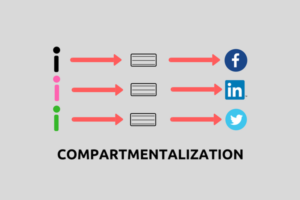 Facebook. I post and comment for my friends and family, often leaving the professional facade behind, however I am still incredibly cognisant of my online footprint, making sure nothing would be deemed inappropriate if my online worlds ever blended together. As I tell my students, we live in an incredibly negative world, where we overlook the good often, and focus on the blemishes a lot more frequently. This is an unfortunate reality, but for teachers, I find it can be a lot more harsh as we are placed on a pedestal of society, always role models whether we are on duty or off. And this calls into question, is this what we really want as a society? Do teachers need to be ‘perfect’ online OR should we be real, showcasing that we are indeed human too, making mistakes and also having lots of different opinions, talents, and interests beyond just being teachers?
Facebook. I post and comment for my friends and family, often leaving the professional facade behind, however I am still incredibly cognisant of my online footprint, making sure nothing would be deemed inappropriate if my online worlds ever blended together. As I tell my students, we live in an incredibly negative world, where we overlook the good often, and focus on the blemishes a lot more frequently. This is an unfortunate reality, but for teachers, I find it can be a lot more harsh as we are placed on a pedestal of society, always role models whether we are on duty or off. And this calls into question, is this what we really want as a society? Do teachers need to be ‘perfect’ online OR should we be real, showcasing that we are indeed human too, making mistakes and also having lots of different opinions, talents, and interests beyond just being teachers?
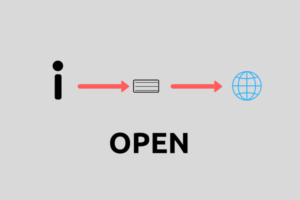 Over the years, I’ve become less strict about who I allow to follow me on platforms, and my world of compartalization is slowly blending as I believe it should. I’m not ashamed of anything I have online, but as we learned in class this week, there is a lot more about us online than we think, which can be a very eerie thought for most of us. Moving forward, I want to continue to create a positive digital identity online and encourage my students to do the same. And I think the best way to teach students this is through modelling. We can lecture all we want about the do’s and don’ts of the online world, but the real way students learn is through practice and example. Leading by example and setting expectations for students is the real way to get them to listen and think about what they are doing online. Fear-mongering does not work and if teachers also become students in the online world, creating a digital identity their students can see, I think it would do a lot for everyone moving forward.
Over the years, I’ve become less strict about who I allow to follow me on platforms, and my world of compartalization is slowly blending as I believe it should. I’m not ashamed of anything I have online, but as we learned in class this week, there is a lot more about us online than we think, which can be a very eerie thought for most of us. Moving forward, I want to continue to create a positive digital identity online and encourage my students to do the same. And I think the best way to teach students this is through modelling. We can lecture all we want about the do’s and don’ts of the online world, but the real way students learn is through practice and example. Leading by example and setting expectations for students is the real way to get them to listen and think about what they are doing online. Fear-mongering does not work and if teachers also become students in the online world, creating a digital identity their students can see, I think it would do a lot for everyone moving forward.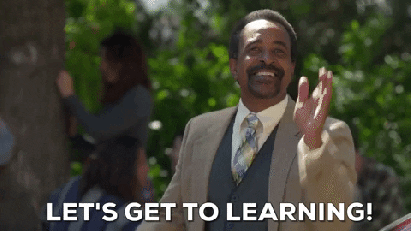
I had a student this week tell me he appreciates the way I teach because he doesn’t feel like he’s just a student but that I genuinely care for him, his growth, and his success. This was one of those moments I thought, this is it. This is why I became a teacher. With teaching comes great responsibility, and maybe it wouldn’t be such a bad idea to blend my worlds a little more, allowing my students to see how I live my live online and also encourage them to improve their digital footprint and individual media literacy. If I have to be a role model, then why not use that power for good, and really attempt to teach my students through example how to leave a healthy digital identity behind.
Until next time,
Shelby

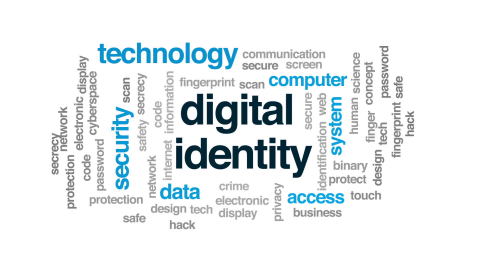
I really enjoyed reading your post and views on digital identity. I do find it interesting how teachers are under a lot more scrutiny then other professions and yet I still think I understand why that is. I also appreciated what you said about fear-mongering. I find it interesting that that is still the most widely used approach! I would love to see us take a new approach and focus on being the example as you said in your conclusion! Thank you again for sharing so openly!
LikeLike
Thanks so much for your comment Sarah! I, too, understand why we are so scrutinized, but I think as we move into the future, the lines are going to become more blurred as our students possibly move into the teaching career as well. They have lived entirely online, so it will be interesting to see what happens!
LikeLiked by 1 person
Yes! I agree! Especially as we can now get infront of some of this technology and try to teach proactively rather than reactively.
LikeLike
This was such an impactful post! You made so many incredible points about how we, as educators, can lead by example. It really hit me when you said “I was so conscious of my footprint that I had basically erased it entirely.” This makes me think about how we can teach kids to create a positive digital footprint instead of erasing their online identity all together. Thanks for sharing!
LikeLike
Thanks so much for your comment Amanda! I know there is a lot of pressure on teachers, but there is also so much opportunity that comes with our profession.
LikeLike
Thanks for well elaborated post. The part about the compartmentalization of your online profile is much like mine. As you mentioned, I’m also in the process of blending those lives. The biggest challenge I seem to be encountering is the intrusion of my professional life into my personal life as well as the intrusion of my personal life into my professional life. Don’t get me wrong, I love being a teacher and I believe my profession my calling, however, I don’t want my profession to overwhelm my family life and my non-education related interests and projects. I’m curious if you are having similar challenges. Thanks again for the great post.
LikeLike
Hi Daniel! I absolutely have those challenges too. It’s a delicate balance and it can be really difficult to not allow one side to outweigh the other. I have a really hard time with the work-life balance and I feel like the online portion of this is also a part of that struggle. I love being a teacher too, but it’s hard not to allow it to be all that I am at the same time!
LikeLike
Shelby,
Thank you so much for sharing!
Instilling fear in kids around social media use doesn’t get anyone very far! I don’t see social media going anywhere anytime soon. I think it is important that we are teaching our students the opportunities social media presents to create a positive impact on our world. Great point!
I appreciate that you mention the idea of modelling these behaviours and recognizing our position as teachers comes with great responsibility. With that being said, I think the blending of your two worlds creates a more comprehensive version of yourself and that you’re “real.” However, I do see the challenges that may come along with that like Daniel mentioned in a previous comment.
Thank you for the thoughtful post!
-Leigh
LikeLike
Hi Leigh! Thank you for the comment. I agree that there are a lot of challenges, and that makes it difficult to truly blend those two worlds together. It’s a very optimistic and possibly naive way to view it, but I think the blending would, like you said make teachers more real to students, even though a lot of complications could come with it!
LikeLike
Pingback: Digital Identity; an Interview with a Teenager – sarahjrossblog
You’re done a good job explaining your digital identity experience and how it is something that you’re always adjusting and revamping. I think it’s important that we reflect on the type of digital presence we have from time to time, as you have, as it allows us to see how we’ve changed over time and how we should not necessarily hide who we are in the online world. However, we have to be aware of the balance between personal and professional, as you’ve mentioned. I’m starting to learn myself that being completely absent is not the best choice, but I’m reluctant to open up and show some of my interests and opinions because I don’t want to be judged, especially by strangers to can access this information. As someone who is starting to embrace this new type of identity, it’s going to take me time to take down some walls. Thanks for your post as it helped me to reflect on myself and my digital identity.
LikeLike
Pingback: Establishing a Thriving (Digital) Identity